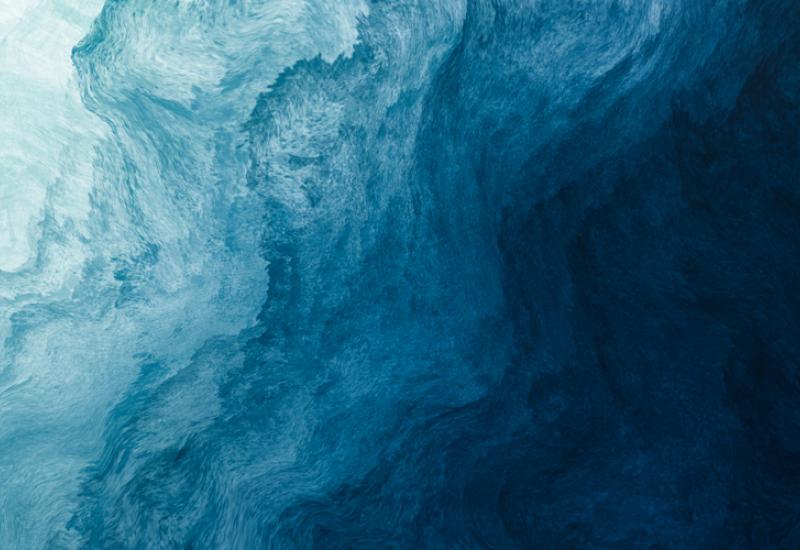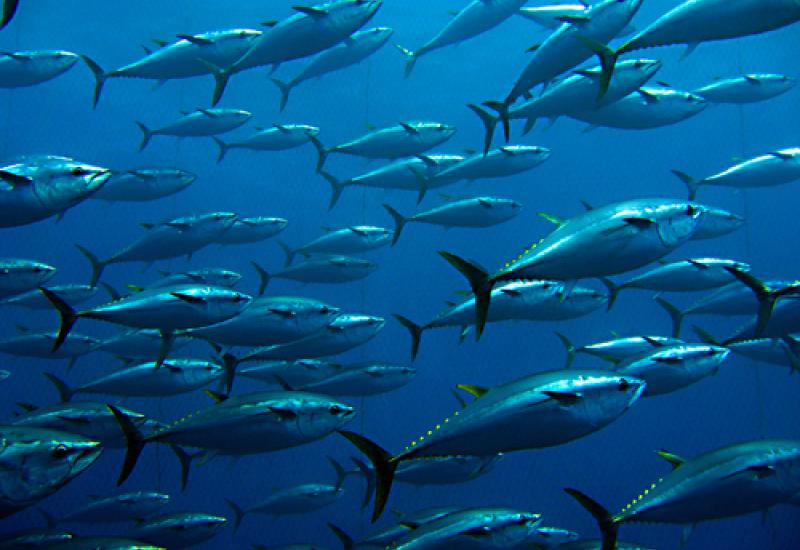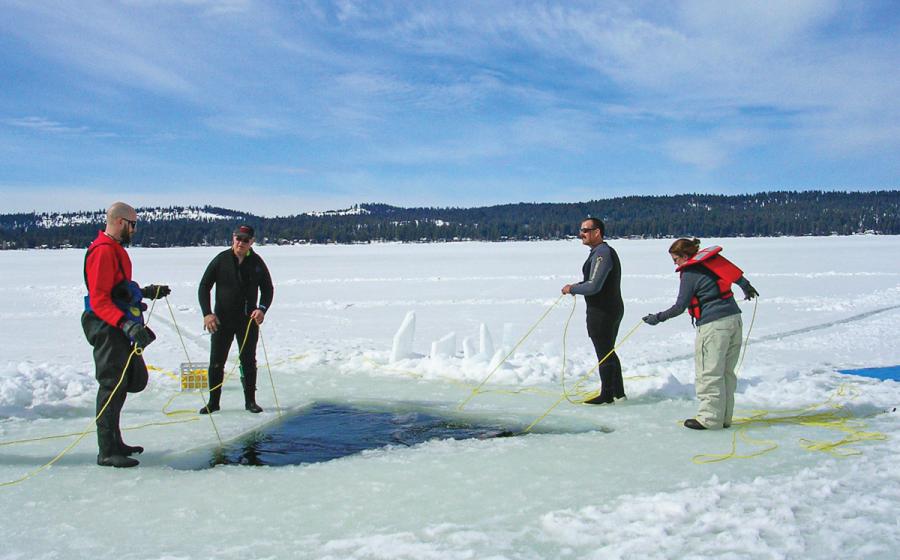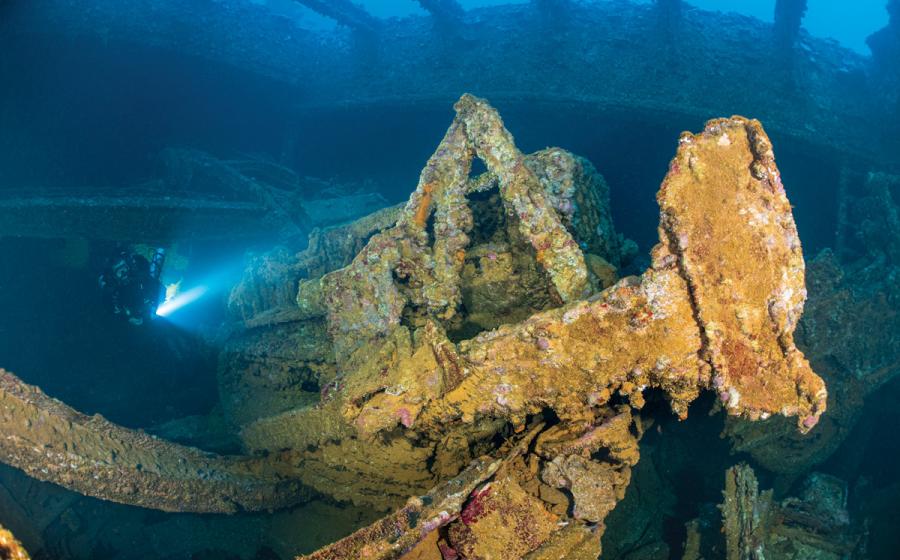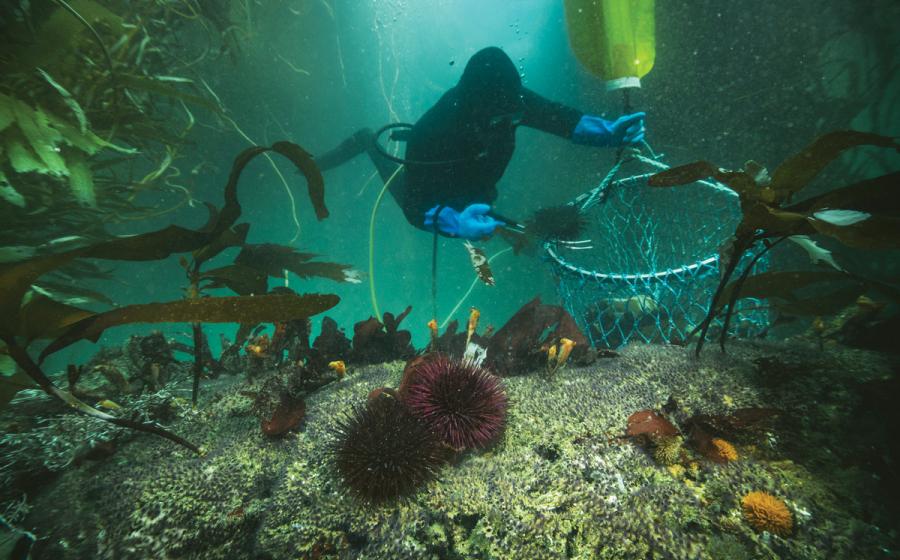How Common Are Stranded Sharks Like the Frozen One in Cape Cod?
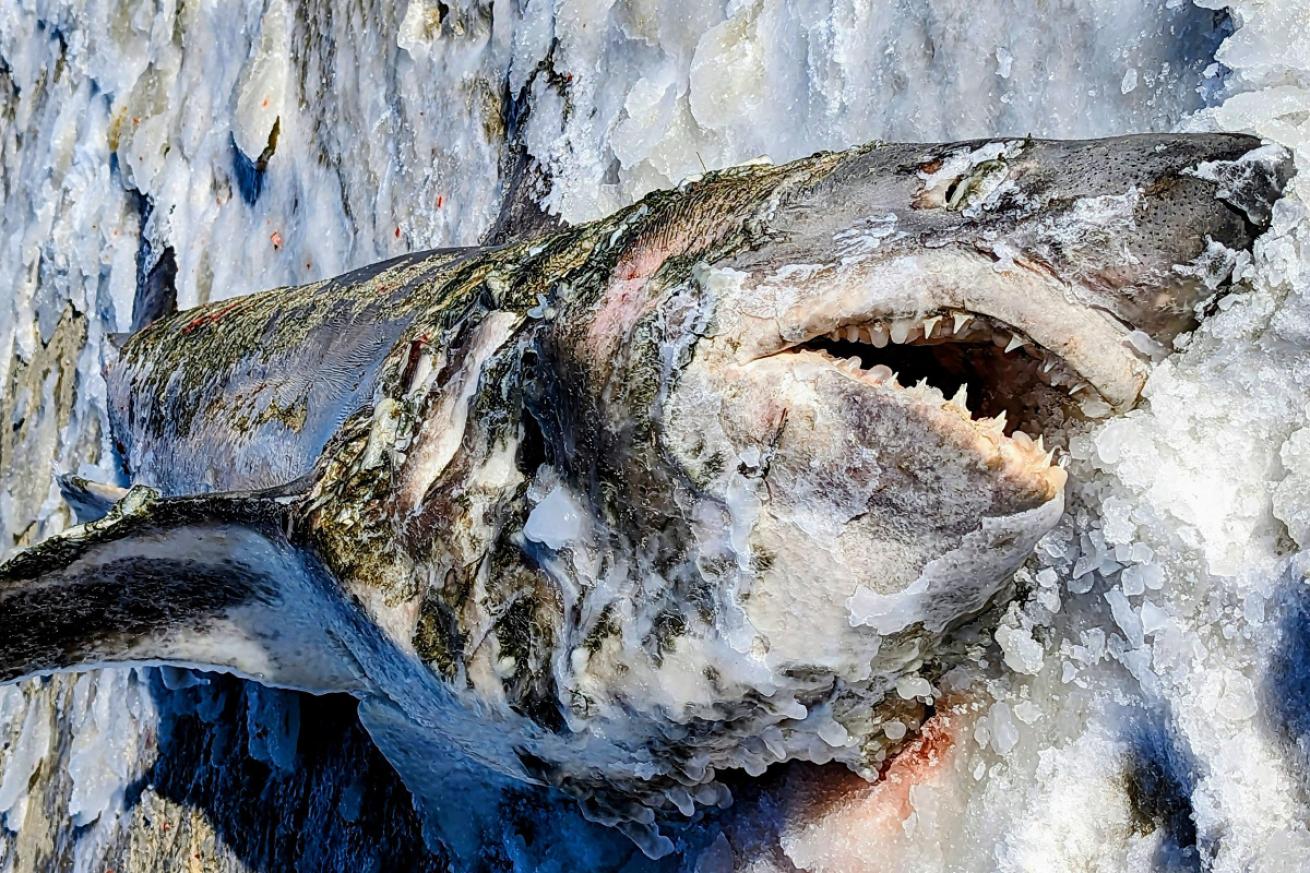
Amie MedeirosA porbeagle shark found frozen in Cape Cod.
A frozen shark washed ashore in New England this month. How common is it for sharks to strand?
Shark strandings do occur, but this is far less of an issue for sharks than it is for animals like whales. And it is so infrequent as to be essentially insignificant from a conservation perspective.
Early last month, a dead, frozen porbeagle shark (NOT a great white shark as was frequently and erroneously reported) washed ashore on the coincidentally-named “Cold Storage Beach.” Following this news story, I received many questions about shark strandings: how common it is? Is it a big problem?
A recent analysis by my colleague Dr. Natashcha Wosnick looked at exactly how common shark strandings are around the world. Her team found about 3,000 cases of sharks stranding on beaches worldwide, representing more than 85 species, though almost all of these strandings came from a single mass mortality event off the US West Coast.
“The data suggest that females strand more than males, but juveniles and adults are affected similarly,” said Dr. Wosnick, a Postdoctoral Researcher at the Federal University of Parana, Brazil. “The leading causes involve viral and bacterial diseases, stress and injuries caused by fishing, marine litter and in the case of mass strandings, abrupt environmental changes. Compared to other stranded animals, sharks have higher mortality rates and no effective protocol for rescue and rehabilitation.”
It’s worth noting that unlike whales, which more famously strand, sharks are fish that need to be in water to breathe. If a shark is on land, many things have gone very, very wrong, and unless that shark is returned to the water within a few minutes, it’s unlikely to survive—and may still die from whatever trauma caused the stranding.
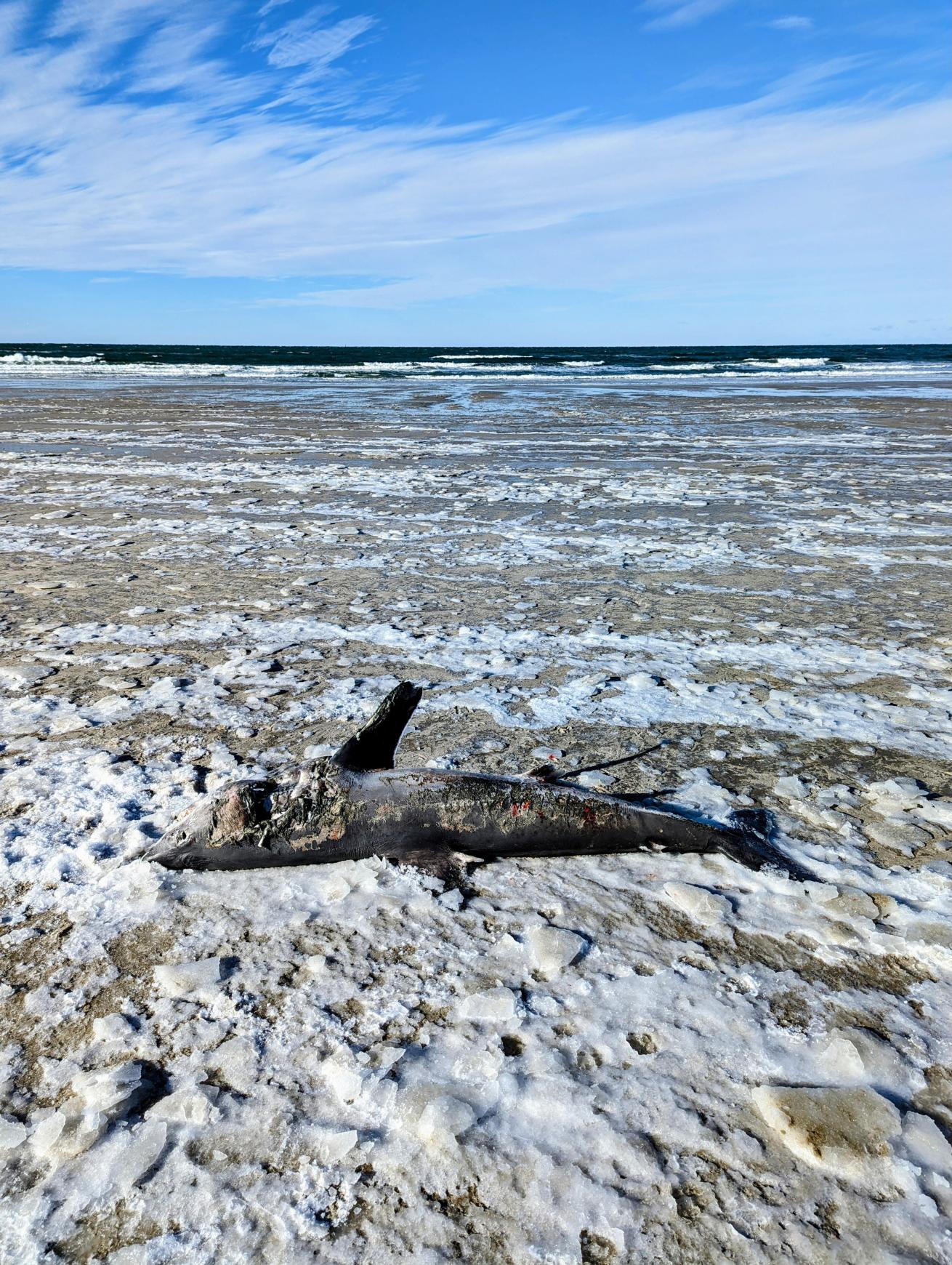
Amie MedeirosA shark stranded on Cape Cod.
From a conservation perspective focusing on preventing populations and species from going extinct, this is a proverbial drop in the bucket. Sharks and their relatives are some of the most threatened vertebrate animals on the planet, and their number one threat, by far, is unsustainable overfishing. In fact, out of all the species of sharks and rays considered threatened with extinction by the IUCN Red List, 100% of them list overfishing among their major threats, and there is not a single shark or ray species that mentions stranding among their threats.
To put this into context, the best estimate that we have for shark mortality (which is a decade old and at best a “back of the envelope” estimate with incomplete data, but it’s still the best estimate we have) says that about 100 million sharks a year are killed by global fisheries. That works out to about 11,000 sharks killed every hour. This means that in a typical hour, nearly three times as many sharks are killed by global fisheries than have been killed by all global strandings ever recorded.
“Although strandings do not represent the biggest threat to sharks, mapping these events can help us to fill important gaps not only for fisheries management but also for ocean pollution and climate change,” Dr. Wosnick told me.
Is this frozen shark a striking example of dramatically changing environmental conditions? Sure. Is it evidence of a major threat to shark populations? It is not.
Ask a Marine Biologist is a monthly column where Dr. David Shiffman answers your questions about the underwater world. Topics are chosen from reader-submitted queries as well as data from common internet searches. If you have a question you’d like answered in a future Ask a Marine Biologist column, or if you have a question about the answer given in this column, email Shiffman at [email protected] with subject line “Ask a marine biologist.”

Courtesy ImageDavid Shiffman
Dr. David Shiffman is a marine conservation biologist specializing in the ecology and conservation of sharks. An award-winning public science educator, David has spoken to thousands of people around the world about marine biology and conservation and has bylines with the Washington Post, Scientific American, New Scientist, Gizmodo and more. Follow him on @WhySharksMatter on Twitter, Facebook and Instagram, where he’s always happy to answer any questions about sharks.
The views expressed in this article are those of David Shiffman, and not necessarily the views Scuba Diving magazine.


